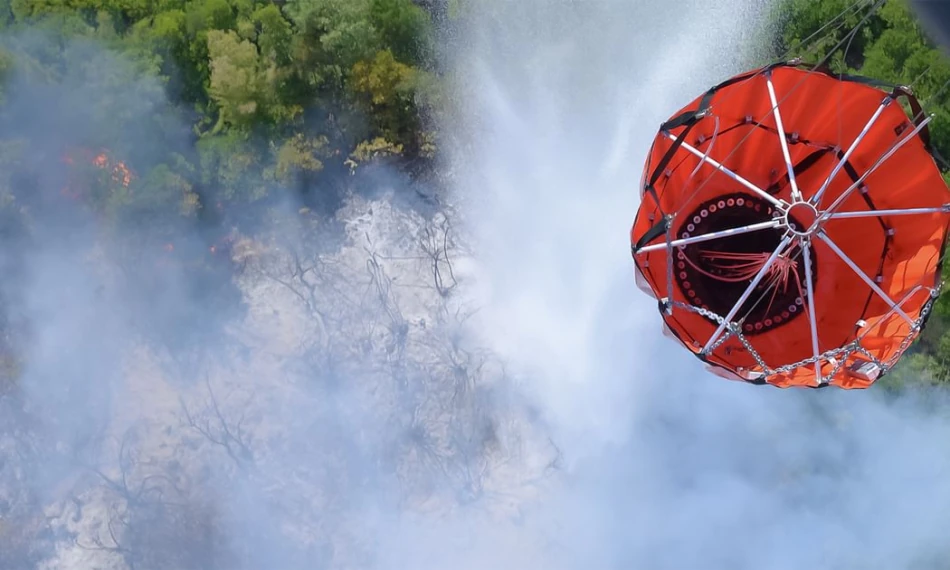
UAE Rescue Team Drops 700 Water Loads to Combat Albania's Raging Forest Fires
UAE Firefighting Teams Battle Albania's Forest Blazes in Major International Relief Operation
United Arab Emirates rescue teams are conducting an intensive aerial firefighting campaign across Albania, deploying specialized Black Hawk helicopters in a coordinated effort to contain widespread forest fires. The operation highlights the UAE's growing role in international disaster response and underscores the increasing severity of Mediterranean wildfire seasons.
Precision Aerial Operations Show Technical Expertise
Since arriving in Albania, UAE teams have executed 28 specialized aerial missions using two Black Hawk helicopters, conducting 700 precise water drops that delivered over 1,298 tons of water to fire hotspots. This level of operational intensity demonstrates significant logistical capability and reflects lessons learned from the UAE's own experience managing extreme weather events in arid climates.
The precision approach—averaging roughly 1.85 tons of water per drop—suggests sophisticated targeting systems designed to maximize effectiveness while conserving resources, a critical factor when operating far from home bases.
Geographic and Climate Challenges Mirror Global Trends
UAE crews are confronting extreme temperatures and rugged terrain across affected regions including the Gramsh and Ballsh forest areas and the coastal Vlore region. These conditions reflect broader patterns of intensifying wildfire seasons across Southern Europe, where rising temperatures and prolonged drought periods have created tinderbox conditions similar to those seen in California, Australia, and parts of the Mediterranean basin.
Strategic Coordination With Local Authorities
The operation involves continuous coordination meetings between UAE teams and Albanian officials to accelerate firefighting efforts while maintaining surveillance of previously contained areas to prevent rekindling. This collaborative approach mirrors successful international firefighting partnerships, such as those between EU nations during recent Greek and Turkish fire emergencies.
Diplomatic Soft Power Through Crisis Response
The mission, directed by UAE President Sheikh Mohamed bin Zayed Al Nahyan, represents a significant soft power investment that extends the Emirates' influence beyond traditional Gulf partnerships. This follows a pattern established by other regional powers like Turkey and Saudi Arabia, which have used disaster relief operations to strengthen bilateral relationships and enhance international standing.
For Albania, a NATO member pursuing EU accession, accepting UAE assistance demonstrates pragmatic diplomacy while highlighting the country's vulnerability to climate-related disasters that could impact its European integration timeline.
Implications for Regional Fire Management
The UAE's technical capacity to project firefighting capabilities across continents signals growing expertise in crisis management that could prove valuable for other Gulf states facing similar challenges. As climate change intensifies extreme weather events globally, countries with advanced helicopter fleets and rapid deployment capabilities are positioning themselves as essential partners in international emergency response networks.
The operation also provides UAE forces with valuable experience in European terrain and weather conditions, potentially enhancing future humanitarian missions and strengthening the country's credentials as a reliable international partner beyond traditional economic and energy relationships.
Most Viewed News

 Sara Khaled
Sara Khaled






